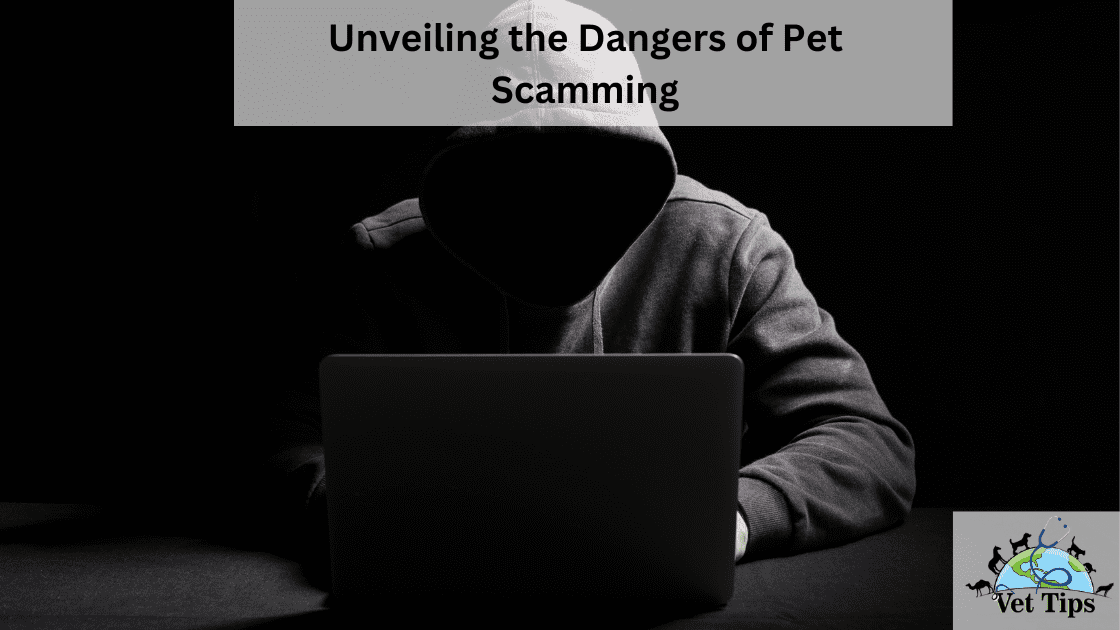In a world brimming with adorable puppies and cuddly kittens, the dark underbelly of pet scamming lurks, ready to pounce on unsuspecting animal lovers. This exposé sheds light on the shadowy dangers of falling victim to heartless pet scammers, as we explore real-life tales, analyze their cunning tactics, and equip you with savvy defenses. Let’s discuss “Dangers of Pet Scamming” in detail.
The allure of a new furry companion can cloud our judgment, making us easy prey for pet scammers. These heartless individuals prey on our emotions, offering charming pets at irresistible prices. They forge heartwarming stories, tugging at our heartstrings, while their true intentions remain shrouded. Many victims find themselves paying hefty sums, only to realize that their new pet was nothing more than a digital mirage.
Current Pet Scams
With internet scams on the rise, be aware of the many different forms of pet fraud. Many times customers are drawn in by a lovely puppy for sale. But after some time, they realize that they have been defrauded out of their money.
Below are some of the frequent and recognized pet scams/frauds that we witness daily.
1. Online Pet Scam
The Steps of a Typical Online Pet Scam include:
- Pets On Sale
Most pet scams begin with a customer looking online for free/inexpensive pets for sale or pups for sale.
- Low Price
Usually, the vendor will offer to give the pet for free and then ship the pet directly to them at a discounted price. Other points to watch for: They nearly usually state they are only giving the pet away because their child passed away, that they relocated for a new job and cannot offer enough attention for the animal due to work hours, or their new residence won’t allow pets, etc.
- Extra Money
Once committed to the transaction, papers, and delivery asking for extra money. The fraudster will next state that the airline is demanding a temperature-controlled box, shipment insurance, additional documentation or vaccinations, etc. They have even gone so far as to set up additional email accounts, websites, and other such things to make themselves appear to be an airline or shipping firm. Every one of these things is part of the fraud!! Their tactics will even include attempting to convince you that they would denounce you to the police for animal abandonment if you do not give them extra money.
2. Pet Passport Scam
Pets are increasingly being transported from Eastern Europe to Western Europe by con artists who use fictitious or illegal microchips (inserted in pets).
Paperwork, age, or passport details of pets do not match with actual age or date. Pet vaccination cards are usually fake (with no immunization to pets at all).
Dangers of Pet Scamming (Cont.)
3. Teacup Breeds Scam
Mistreatment of Teacup-Breed Dogs
It is a known fact that the number of teacup breeds being exported throughout the world has increased in recent years.
While some are legal, there are a large number of pets that are being purposefully taken from the mother’s womb early to keep their size under control. As a result, teacup breeds are extremely tiny and squat. Even though the necessary documentation and veterinary procedures were followed, the pet should not have been treated at the time it was since it is not physically of the appropriate age. Please take your time while selecting your teacup puppy.
4. Fake Airline Websites
According to the FBI, scammers are now duplicating airline websites, pictures, logos, emails, and other marketing materials to defraud individuals out of more money when they are selling or transporting pups. Once you have made arrangements with the fictitious shipper/seller, you will receive an email from the “airline” that will be transporting your animal informing you that you must send additional funds to cover the cost of missing paperwork, vaccinations, an inadequate kennel, required pet insurance, and other expenses. The fraudster will even create a new email account, which will generally contain some airline name variation. (For instance, americanairlinepetservices@usa.com, deltashipper@gmail.com, info@aircargoshipping.com, and so on.)
5. Holiday Pet Scams Warning
During the Christmas season, a large number of households acquire or adopt a pet, and most of them get scammed.
An investigation into the increasing number of pet scams was conducted by the International Pet and Animal Transportation Association, a non-profit international trade association for professional pet shippers. The International Pet and Animal Transportation Association collaborated with the Better Business Bureau earlier this year on an investigative report on the increasing number of pet scams. They state that the number of pet scammers has increased 50 percent in the last decade.
What is the impact of pet scamming on pets and pet parents?
Pet scamming is a serious threat to the lives of pets, and it has a negative impact on their owners. Depending on the fraud, your pet might have a significant impact. Scammers are often uninterested in animals of any kind. They do not provide them with adequate nourishment or sustenance. If you receive a pet from a fraudster, it will be malnourished and feeble.
On the other hand, Pet owners have numerous desires and ambitions for their forthcoming pup, in whom they have put a great deal of effort and money. If they get scammed, it may lead to severe anxiety and stress, and after scamming, pet parents do not trust even legitimate sellers and avoid purchasing pets.
Pet Scam Warning Signs and Symptoms
In this day and age of increasing internet fraud, it is important to be aware of the many types of pet fraud. Many times buyers are pulled in by a gorgeous dog for sale. However, when some time has passed, they come to realize that they have been duped out of their money.
Here are some of the best pet scammer excuses:
- The asking price for a dog or cat is far lower than the going cost for a popular breed.
- The individual who is giving the animal is adamant about shipping and refuses to accept offers to pick up the pet in person.
- The spelling and punctuation in emails from the vendor or the delivery business are terrible at best.
- According to the vendor, payment must be done via money transfer (such as Western Union or MoneyGram), gift card, or prepaid debit card.
- There are constant requests to send more funds for various reasons, such as insurance, pet food, veterinary treatment, or a custom-made shipping container.
Comparative Analysis Depecting the Dangers of Pet Scamming
Let’s dissect the tactics employed by pet scammers, comparing their strategies to legitimate pet adoption processes. While reputable adoption centers prioritize transparency, offering meet-and-greets and thorough background checks, scammers hide behind slick websites and fake testimonials. The graph below highlights the disparities:
| Aspect | Legitimate Adoption | Pet Scamming |
|---|---|---|
| Transparency | High | Low |
| Background Checks | Comprehensive | Non-existent |
| Face-to-Face Meetings | Encouraged | Avoided |
| References/Testimonials | Authentic and Verified | Fabricated and Deceptive |
FAQs about Dangers of Pet Scamming
How do pet scammers operate?
Pet scammers lure victims through appealing websites or social media posts, offering pets at unrealistically low prices. They request upfront payment for shipping, vaccination, or paperwork, vanishing once the money is sent.
Are there warning signs of a pet scam?
Absolutely. Be cautious if a seller avoids face-to-face meetings, uses generic photos, demands upfront payments via untraceable methods, or insists on rushed transactions.
What breeds are commonly used in scams?
Popular and expensive breeds like French Bulldogs, Teacup Yorkies, and Ragdoll Cats are often used as bait due to their high demand.
How can I protect myself from pet scams?
Research the seller’s credentials, insist on video calls to see the pet, arrange a physical meeting, and never make payments using untraceable methods like cryptocurrency or wire transfers.
What if I’ve been scammed?
Report the incident to your local authorities, the Federal Trade Commission (FTC), and the Better Business Bureau (BBB). If money was involved, contact your bank or payment provider.
Are there safe alternatives to buying pets?
Absolutely. Opt for adopting from reputable shelters, rescue groups, or breed-specific clubs. Legitimate organizations prioritize the well-being of pets and their future families.
Can I verify a breeder’s authenticity?
Research the breeder’s background, ask for references, and contact them to confirm their legitimacy. Reputable breeders are transparent and happy to answer your questions.
What should I be cautious of in online listings?
Be wary of listings with too-good-to-be-true prices, poor grammar, or vague descriptions. Scammers often reuse photos, so reverse image searches can reveal fraudulent listings.
Are pet scams on the rise?
Unfortunately, yes. The surge in online pet shopping during the pandemic has created fertile ground for scammers. Vigilance is crucial in this digital age.
What’s the emotional impact on victims?
Victims of pet scams endure not only financial loss but also emotional turmoil. The dashed hopes of welcoming a new furry friend can be deeply distressing.
Tell us in the comments, how you like our article “Dangers of Pet Scamming”
For similar posts like this, click here.
For the source file, click here.





One thought on “Unveiling the Dangers of Pet Scamming”